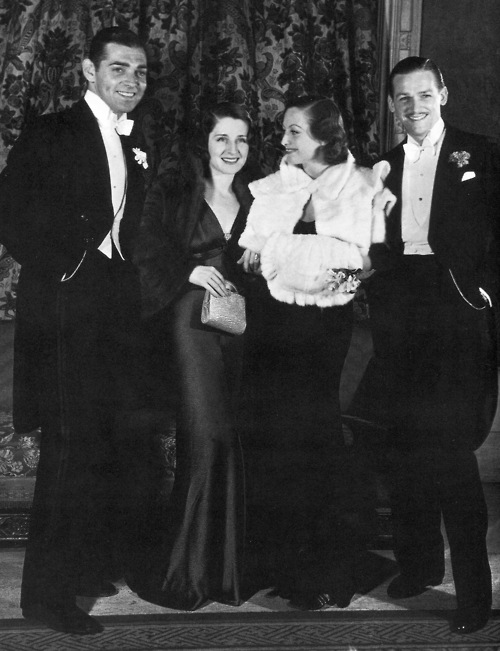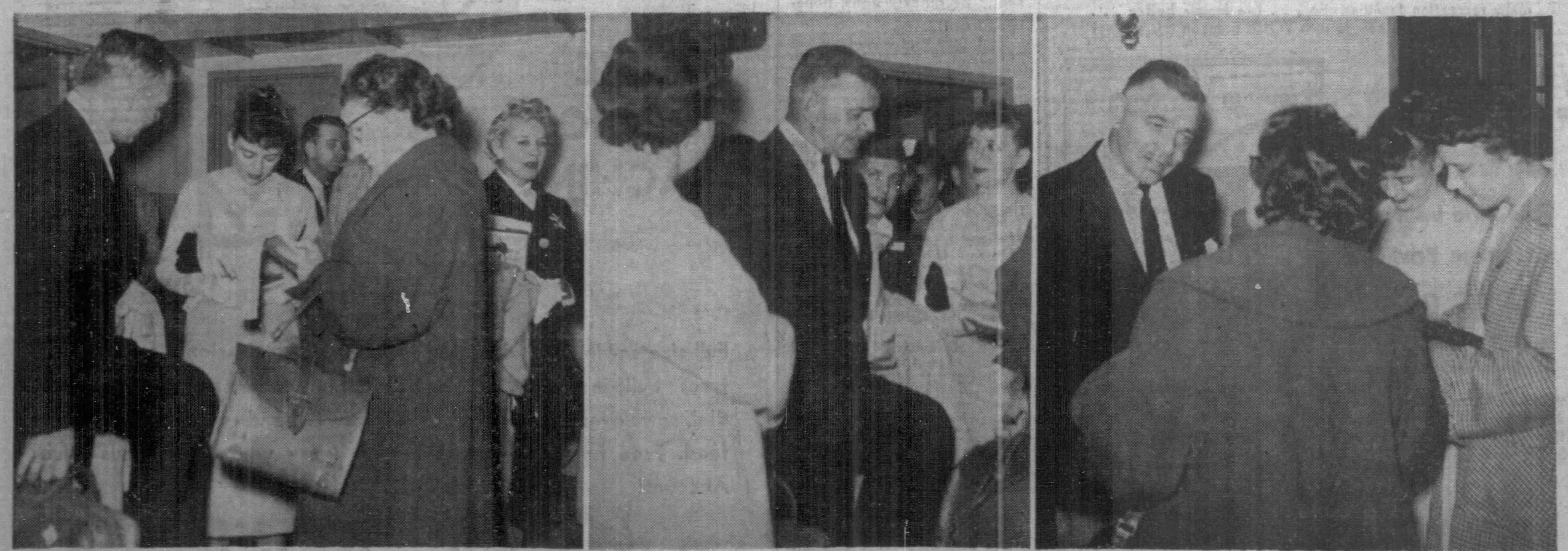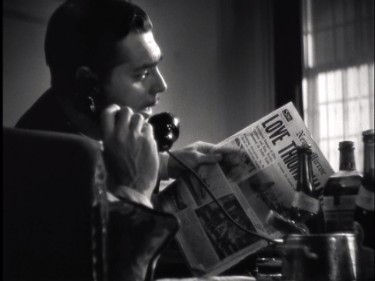{New Article} 1931: Will Gable Take the Place of Valentino?

Here we have an article featuring new star Clark Gable, comparing him to belated silent star Rudolph Valentino, whose untimely death just a few years earlier was still fresh on everyone’s minds.
Once in a lifetime—and maybe twice—there flashes across the screen a man with the power to make all women feel that they are in danger. Such danger as all women prefer to peaceful safety.
Once—and perhaps twice—we see a man who, when he kisses the heroine on the screen, kisses you—and you—and me. A man with an earthy quality—call it romance, call it glamour, call it sex. No matter what you call it, there it is, compelling and irresistible.
Such a man was Valentino.
And such a loss was his that no one—not Ronald Colman, nor John Gilbert, nor Clive Brook nor any other man—has been able to atone for that loss.
Valentino’s death is, to-day, the grief it was yesterday. He was every woman’s lover. He was every woman’s dream of that romantic secret life never yielded her—save in him. He was every husband’s and every lover’s phantom rival. He made lonely woman glow and love again. He gave color and flame and mystery to the feminine world.
No man is like another man. No emotion is ever the same as another emotion. But a similar effect may be produced.
Clark Gable is not Valentino’s successor, not his rival, not even his counterpart—but he is a man who will give you the nameless thing that Valentino gave you.
He will make you dream again. He will evoke the flames of desire. He will quicken your veins with the same sensuous fever that Valentino gave you—and left you the poorer when he took it away.
Everywhere, here in Hollywood, where women gather, you hear the name of Clark Gable. Everywhere men as well as women are calling him “the biggest sensation the screen has known in years.” And everywhere you hear: “Doesn’t he remind you a little of—Valentino?” I give you my word that I have heard two hundred Hollywood women, in groups and individually, say that same thing to me and to each other.
Ok yes, this is a hokey article. It seems rather silly to me to compare Gable to Valentino—-they had very different screen presences. In fact, many heralded that Gable was a new kind of leading man–the burly everyman–as opposed to Valentino’s old world silky smooth Romeo type.
[Clark] laughed when I asked him if he felt himself to be the dangerous, thrilling individual he is on the screen. He just threw back his head and laughed. He laughs a lot. You suspect that his laughter masks embarrassment and uncertainty—uncertainty of just how serious you may be when you talk to him of his potentially brilliant future.He claims he doesn’t want to have a great roll of money. I really believe that he doesn’t, too. He says, “If I reach the spot you are telling me about, I know what I’ll do—I’ll back out gracefully. I don’t want money, not a great deal of it. I don’t want things. I’m not that type of person at all. I wouldn’t be happy living as some of the stars out here live. I don’t care anything about luxuries and servants and swimming pools and big parties. I wouldn’t fit. I couldn’t handle them. It’s important to me to be happy—in my own way.”
I asked him about women—of course, I told him some of the things that might happen to him if he should approach the stage that Valentino reached. The hysteria of women. The pursuit. The burning curiosity. He said simply, “I should think it would be sort of repulsive.”
He is not a ladies’ man, this dark, new lover. He is timid with women, respectful and courteous. He makes you feel dangerous when you look at him. When you talk with him, you feel comfortable and happy and safe.
He likes men’s things. Especially horses. And boats. And the sea. And guns and pipes and long hikes and the mountains. His favorite author is D.H. Lawrence.
He drives to the beach at four in the morning to see the sunrise and he tells you about sunsets he has seen. He tells you about sunsets with the same ardor you might suppose he would tell you about women.
He doesn’t talk about women at all. He doesn’t seem to be interested. His mind doesn’t run that way.
This was very much the persona that the studio was shopping around about Clark—a timid gentleman who would ring the doorbell and have a talk with your father before taking you out on a date. Not exactly accurate…
When I pressed him for an opinion, he said that he liked modern women, self-reliant women, women with minds of their own. He does not like clinging vines or cute little things. He likes a woman you can talk to as you can talk to a man. He also said that he doesn’t care particularly for the sensationally beautiful woman. He pointed out that many of the great loves of the world have been between people of no outstanding beauty. He asked me, relative to this, if I had read “The Savage Messiah,” the new and powerful biography of Van Gogh, the artist.
What’s very interesting about this otherwise fluffy article is that when this was published in November 1931, Clark was married to his second wife, Ria. There is no mention at all of her in this article, no mention at all of him being married. Asking a married man what kind of woman he prefers? Saying he’s timid around women? Seems odd, doesn’t it? Back then, the articles for these fan magazines were written way ahead of time (for instance, fan magazine articles about Carole Lombard’s death in January 1942 didn’t start appearing until April of that year), so I’m guessing this was written before Clark and Ria’s wedding in June 1931. Which, as I wrote about a few years ago, was, according to MGM’s publicity department, their “second wedding just to make it legal in the state of California.” Such hogwash. If that was true, why did articles like this omit her completely?
You can read the article in its entirety in The Article Archive



One Comment
CocoB
When Gable started out no one knew what he’d be. Heartthrob, villain, comedian whatever but when he became a heartthrob then being married/having a wife could get sticky. Then there was the problem of Rhea being so much older too. Also keep in mind people didn’t speak openly about things as they do now and fact checking was a lot harder. So it’s not that surprising his wife was left out. Especially as you point out there was some shall we say confusion about his marital status to Rhea.